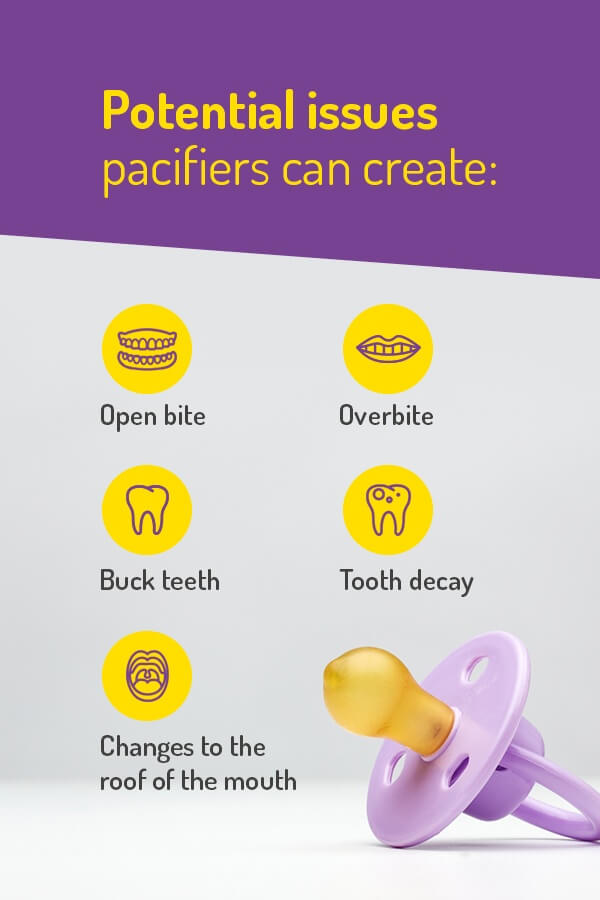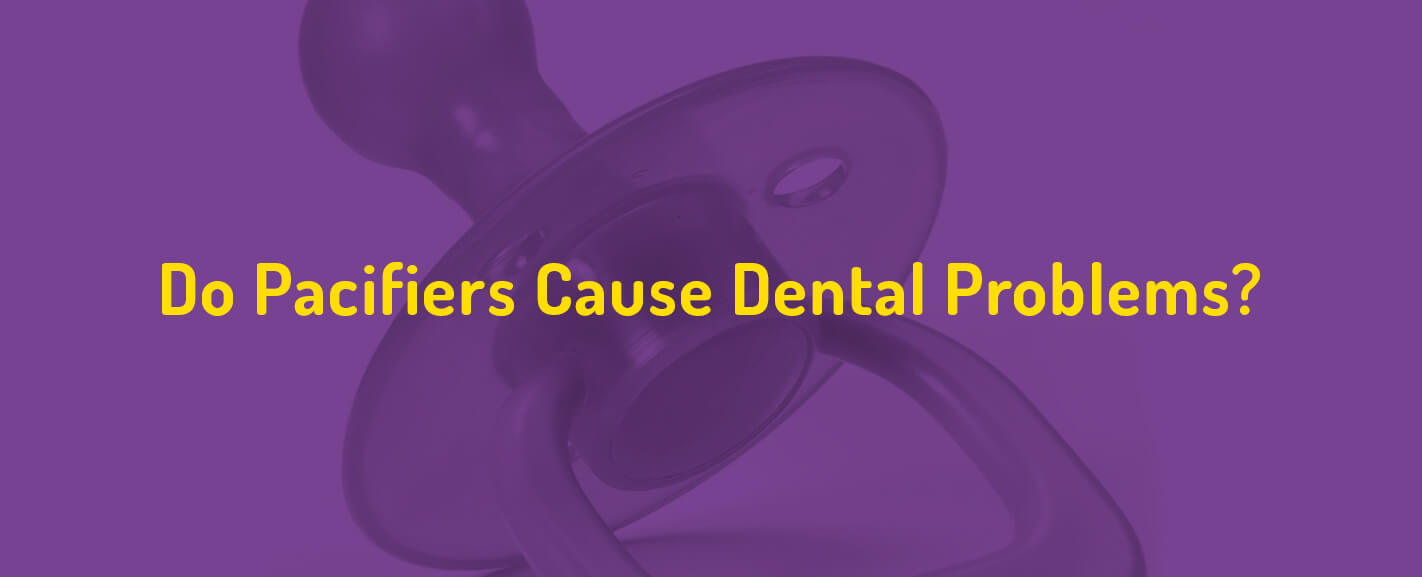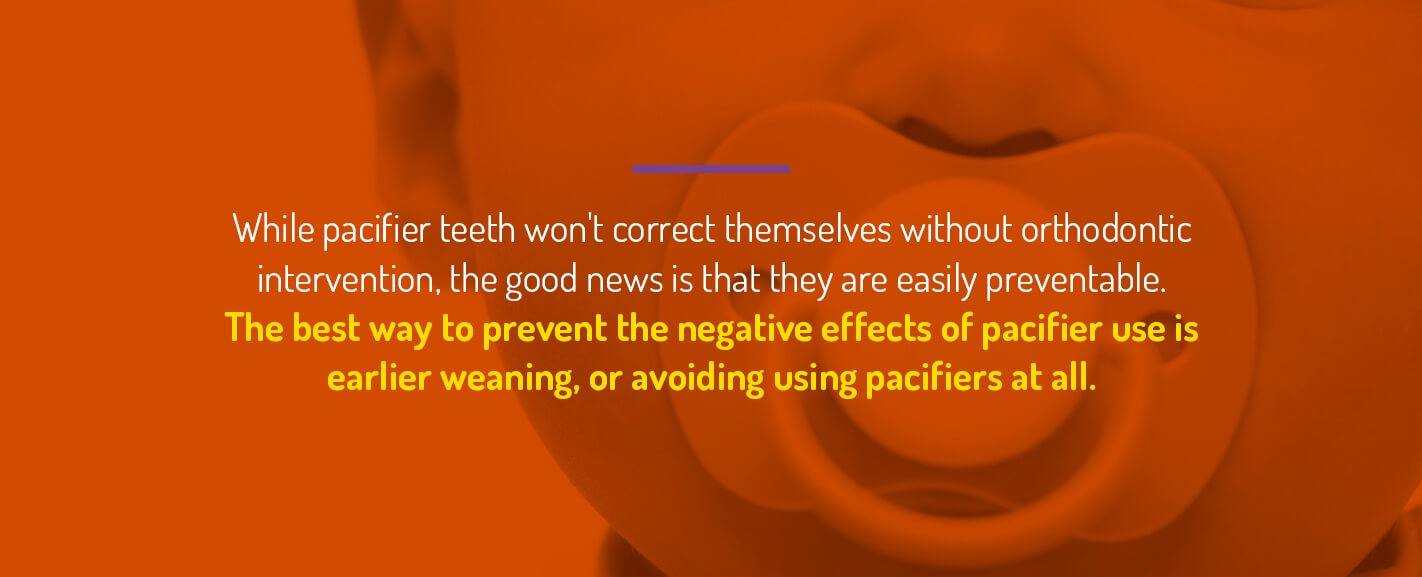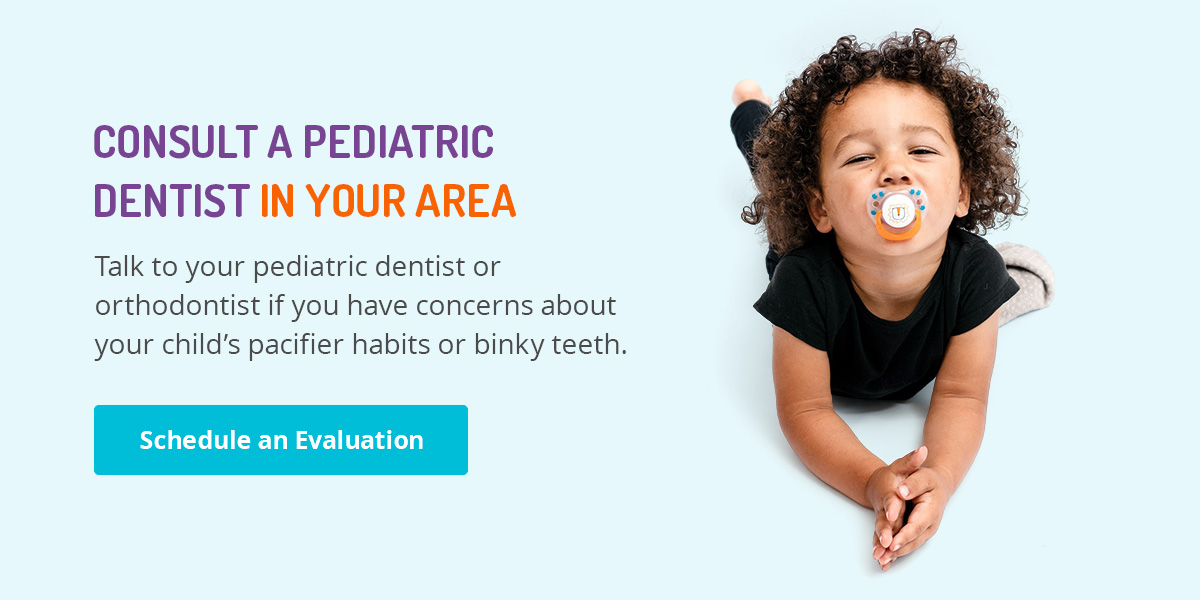For many infants and toddlers, sucking on thumbs and pacifiers is a natural way to self-soothe. Many parents worry about pacifier use because the habit can be hard to break and lead to dental issues.
Call to Schedule A Dental Appointment
Are Pacifiers Bad for Teeth?
When children use pacifiers for an extended period of time it can lead to problems with their smile. The longer a child uses a pacifier, the more likely they are to need orthodontic treatment when they’re older.
Many dentists recommend discouraging pacifier use after age three. However, studies by the American Academy of Pediatric Dentistry show that child pacifier use increases the risk of ear infections and bite issues starting at 12-18 months of age.
How Do Pacifiers Affect Baby Teeth?
Using pacifiers in infancy is generally safe and can be a great tool. However, long-term use can lead to dental problems like pacifier teeth and bite problems. These issues include:
- Open bite: This misalignment involves teeth that are angled outward and may not close, often causing larger spaces between the front teeth.
- Buck teeth: Protruding front teeth can be hereditary, but pacifiers can cause or worsen them.
- Crossbites: This occurs when the upper teeth fit behind, or inside, the lower teeth. Pacifiers usually cause this to occur with the back teeth.
- Changes to the roof of the mouth: Using pacifiers over an extended period can cause a narrowing or general misshaping of the mouth roof.

Other Potential Issues Pacifiers Can Cause
Extended pacifier use can lead to some other issues:
- Skin problems: Pacifiers can rub and irritate the skin around the mouth.
- Speech impediments: Pacifiers can cause mouth misalignments, which may affect speech.
- Eating problems: Misalignment can also cause problems eating.
- Social issues: Using a pacifier and its adverse effects — like buck teeth and speech impediments — can be embarrassing for children.
Will Pacifier Teeth Correct Themselves?
When the pacifier habit is stopped by age three or four, the affected baby teeth often have time to drift back. Teeth will not fully self-correct if a pacifier is used for too long. When the teeth have reached this point, it’s best to consult an orthodontist.
How to Prevent Pacifier Dental Problems
Stop using pacifiers early to prevent pacifier teeth. Use breastfeeding, white noise, rocking, swaying and natural baby teething toys to help infants soothe themselves in place of their pacifiers. For toddlers, try a special blanket, a toy, a night light and a sippy cup with water for comfort.
Consult a Pediatric Dentist in Your Area
Talk to your pediatric dentist or orthodontist if you have concerns about your child’s pacifier habits or binky teeth. At Fox Kids Dentistry & Orthodontics, we offer both specialties!
Contact us to schedule an evaluation or checkup. Give us a call at 503-223-5039.



